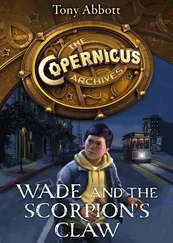The greatest difficulty was getting out of our holes unseen. The Russians had naturally identified each hole and closed in around us. Of our four, Gillner and myself were the lucky survivors. Covering all sides, we came to the edge of the wood. What we then saw made our blood run cold. Thousands of Russians were streaming past unhindered, tanks, guns and carts, all going west. They were only 200 metres from us and had no idea that we were still in the wood, believing that we had retreated.
Staff Sergeant Lauffen gave the order not to open fire on any account, as it would only give us away. We dug in and waited for evening. The rest of the company was about 300 metres north of us and we could only communicate by runner.
Second Lieutenant Reifferscheidt ordered our platoon to break through with the company at nightfall. A reconnaissance party had found a position that appeared to be only weakly occupied and that was where the breakthrough would occur. When Second Lieutenant Reifferscheidt sent his company runner, Grenadier Reiffen, to us, he got lost in the wood and did not find us for quite some time. Meanwhile the company of about 60 men had split up.
Now our platoon was on its own and no one knew which way the company had gone. Nearly all the buildings in Rathstock were on fire and, although we were about 600 metres away, it was as light as day.
Before breaking out we destroyed everything that could hinder or betray us; without tent halves, [6]haversacks, messtins and gasmasks. We only had our rifles as we left the wood when it was fully dark. In front was Staff Sergeant Lauffen, then the company runner, Grenadier Reiffen, Sgt Krahl, myself, Sgt Gillner, Heinz Warrelmann and then the remainder of the platoon. We could expect to be spotted by the Russians at any moment and be fired upon. Not a word was said. At first we went through the wood, then crossed a road and came to a field that gradually sloped up to Rathstock.
Suddenly we were called upon in the middle of the field: ‘Halt! Hands up!’. Twenty metres in front of us was a heavy Russian machine gun. They had seen us and immediately opened fire. Standing we would all have been killed, so we threw ourselves down, but we could not return the fire without hitting each other.
What now? Turn back? But that would offer the enemy a much better target. The Russians had dug in and were hard to see. However, before we could make up our minds, shots started landing among us and we had to lie still. It was frightening lying there, unable to shoot back. The Russians were using explosive bullets. I could see the shots exploding around us, and muck and sand was blowing into our faces. I thought: ‘This is it!’ I pressed my face to the ground, not wanting to look any more, and listened and waited for the end.
Then sub-machine guns could be heard firing. None of us cried out. I could not understand it. Were they all dead then? Then Staff Sergeant Lauffen started shouting: ‘Comrades, stop firing, we are wounded!’
The Russians kept on firing. Staff Sergeant Lauffen shouted once more and then was silent. When the Russians reopened fire, I grabbed Krahl by the leg and said: ‘Come on Krahl, fire, fire!’ for he was the only one with a machine gun. He did not answer. I tugged him again. His face dropped from his arm into the sand. He was dead! Carefully I dragged myself toward Gillner. He lay with his head in the sand. I pushed his helmet back and saw his eyes: dead.
Something came flying through the air. Hand grenades! I lay still, unable to move. A hand grenade landed only two metres from me, and I could see the sparks. Then it exploded. I received a tremendous blow on my helmet, the blast taking my breath away, and sand pattered down around me, but I was not wounded. Apparently a splinter had struck my helmet, leaving a dent behind. The helmet had saved my life.
Several more hand grenades followed, then it was quiet. Then someone moved up in front. ‘Now they are coming,’ I thought, ‘but they are not going to get me alive. Before I go, I will take someone with me!’. Preferring to sell my life as dearly as possible, I took the pin out of a hand grenade and was about to throw it, when I saw that it was Grenadier Reiffen. With his small body he had found cover behind Staff Sergeant Lauffen and so remained unwounded. ‘Come on, back!’, he said.
Then someone came crawling up from behind. It was Harry Warrelmann. ‘Gerd, are you wounded?’ he asked.
‘No, are you?’
‘Yes, four times – chest, stomach, bottom and thigh.’
‘Come on, back!’ I said, but he replied: ‘No, it is pointless, I won’t get through. But when you get to Delmenhorst again, please visit my parents and tell them what happened.’
I said: ‘Nonsense, you are coming back!’
But he shook his head and said: ‘Greet my parents.’ Then he crawled off.
Reiffen and I crawled cautiously back. The Russians could not have seen us moving or otherwise they would have got us. All the comrades lying there were dead. Once we had crawled about 30 to 40 metres, we ran back to the wood, bent over at first but then upright, as we knew that there were no Russians there. We went back to the company command post and smoked a cigarette.
Now the hopelessness of our situation became clear. All around us were Russians and more Russians, the nearest Germans being four or five kilometres away. I thought that my end had come. I thought of my home and my loved ones, who would now be sitting safely in an air raid shelter. There was another air raid on Berlin going on, for although it was 70 kilometres away, we could hear the firing of the anti aircraft guns. Next day, the Russians would search the wood and find us. I did not want to surrender, as I had often heard that the Russians killed their prisoners. Suddenly we heard voices. Reiffen and I cautiously looked out and then realised they were German. It was another six men from our platoon that had come back, having failed to get away. Some were utterly despondent and wanted to go over to the Russians. The chances of getting through were very slight, but we decided to try anyway.
Meanwhile it was already one o’clock in the morning, so we decided not to break through north of Rathstock, the way the company had gone, as the Russians would have been alerted there, but to try a route south of Rathstock.
We came out of the wood and reached the road and hid in a couple of shellholes to observe the traffic. The Russians were passing only ten metres from us and we could hear every word they said. Many were singing and trucks were driving back and forth. The sky was overcast, but the moon still broke through a gap in the clouds.
When there was a pause in the traffic on the road for a moment, we worked our way forward to the roadside ditch and prepared to run across. To our horror, we saw Russians digging in only a few metres away from us. They were so eagerly engaged that they did not notice us, but we would have to go back.
Then a horse-drawn cart came along the road. We lay in the ditch with our faces pressed to the ground, hardly daring to breathe. The cart went past only a few metres from my head, a marching column following behind. We dared not stay lying there, as they would surely have seen us, so we stood up and walked along with the cart as if we belonged to it, but then the moon came out from behind the clouds and the cry went up: ‘Germans!’
We ran off as fast as we could across the field, the Russians firing wildly at us, but not hitting us, as we took cover in shellholes. We could see the Russians silhouetted against the burning village as they surrounded the field, but we all managed to slip out through a gap in their cordon.
By now the Russians had been alerted and we had to be more careful. It would soon be morning and the horizon was getting lighter. The cloud cover had broken up and the moon was shining uninterruptedly. We decided to look for a hiding place until the next evening and try to break through again when the Russians had settled down. We found a hiding place in a turnip shed, where we lay down on the turnips and covered ourselves in straw. After a short while, I realised that the cold was making my limbs stiff. I consulted with the man next to me in a whisper, and we decided to look for another hiding place.
Читать дальше












